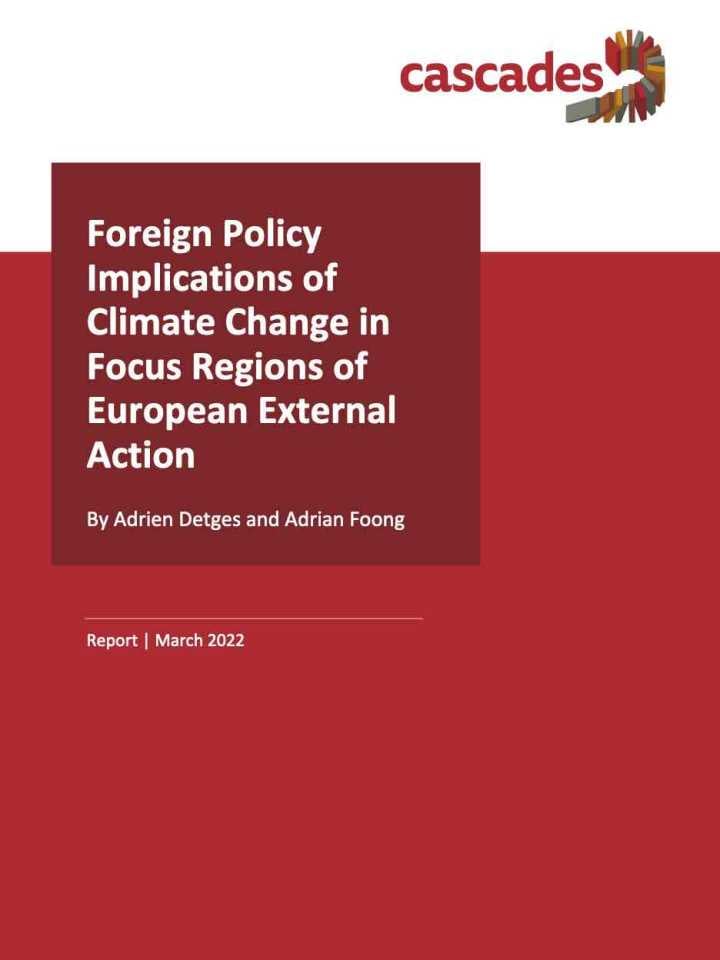Foreign policy implications of climate change in focus regions of European external action
This report discusses the possible effects of climate change on issues at the core of European foreign, security, and development policy – livelihoods, food security, migration, and political stability in regions with close ties to Europe. In a globalised world, the effects of climate change are likely to cascade across borders. Climate impacts in one location may have far reaching consequences in other places by affecting trade, migration, investments, and foreign policy objectives. Whether such cascading effects are likely to materialise depends in turn on a number of social, economic, and political factors that reinforce or attenuate the effects of climate change on economic development, migration, political stability, etc.
Across regions, the authors identify a number of challenges and opportunities in different scenarios, which assume either more or less favourable moderating conditions (i.e., with regard to technology and physical infrastructure; resource and conflict management; economic opportunities; trade and access to markets; governance and state-citizen relations; and social and diplomatic relations). Despite important challenges and mounting climatic pressures in all considered regions, the results leave some room for optimism. Depending on their ability to build strong and inclusive institutions, promote sustainable development, and strengthen social and diplomatic ties, affected countries and their partners might be able to reduce the risk of adverse cascading effects in connection with a warming world.
Explore further
